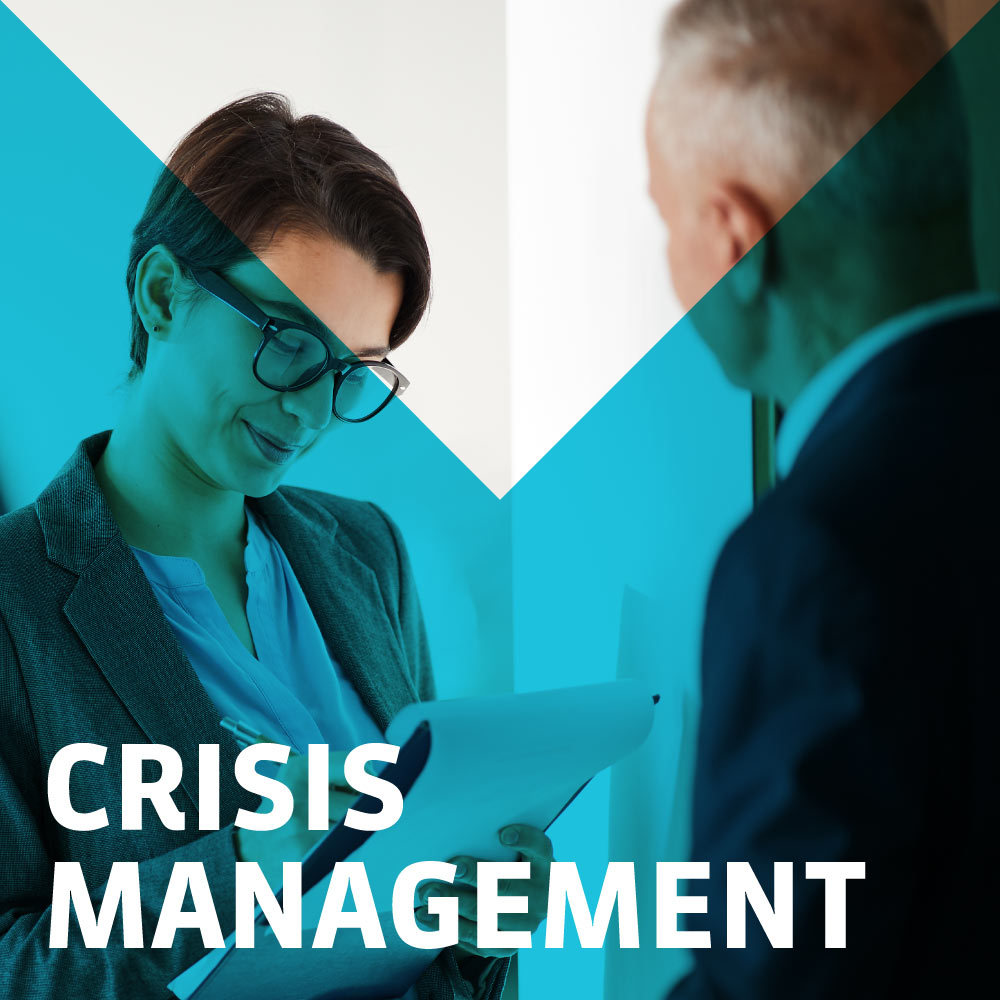Crisis Management Program
No matter our profession, organization, sector, or ecosystem, we will always have to navigate unforeseen circumstances in our lives and careers. A natural disaster, a financial, environmental, political, health, social or family crisis will occur on a greater or lesser scale at some point in our lives. It is critical to be prepared to avoid chaos and mitigate its effects.
The COVID-19 pandemic represented an unprecedented challenge for decision makers in the public and private sectors. Confinement measures, border closures, interruption of air traffic, bans on land movement and mobility were implemented, while ensuring that what is essential continues to operate.
This pandemic, which has lasted longer than imagined, should be taken as a great opportunity to learn and to realize that we are all vulnerable and in some way actors in the management of the crises in which we will be affected.
Implementing a crisis management plan, understanding the stages of a crisis, and ensuring you have the right people by your side to help you manage and work through a crisis are fundamentals to prepare for one of these unplanned events.
OBJECTIVE
This program seeks to provide participants with analytical and practical skills for crisis management, such defined as an obstacle that cannot be solved with the usual structure.
The program provides a strategy to timely recognize (or even foresee) a crisis and activate management in its different dimensions: administrative, financial, human teams, cooperation, communications, and organization, in a proactive framework that minimizes the crisis in the organization or society.
After completing this program, you will:
What can we do together?
Programs
Our programs are designed to provide you with the necessary tools and experience to help you improve your performance in different areas.
 Women who participate in this program are committed to make a difference in our world and driving change in their lives, organizations and communities.
Women who participate in this program are committed to make a difference in our world and driving change in their lives, organizations and communities.
services
If you are in the C-Suite in your organization, you certainly know that only experience will give you confidence and certainty when making decisions.



